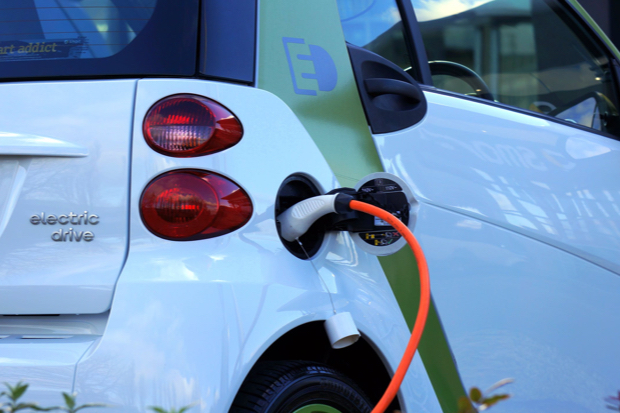21 June 2019
Government must 'supercharge' EV strategy, says leasing industry including publishing a five-year motoring tax roadmap
A BVRLA report suggests the Government is falling behind on its ‘Road to Zero’ strategy.

The report suggests they need to re-think:
- Taxation: Uncertainty over EV tax means buyers are holding off purchasing an EV.
- Charging access: Despite new infrastructure plans, there still aren’t enough accessible charge points in the UK.
- Their own vehicle fleet: Ultra-low emission vehicles only make up 2% of the Government’s fleet.
The Government must supercharge its electric vehicle strategy if it is to have any chance of meeting its recently made 'net zero' emissions by 2050 pledge.
That's the view of the British Vehicle Rental and Leasing Association (BVRLA), of which Activa Contracts is a member, with publication of new analysis showing that issues with taxation, charge point infrastructure and vehicle supply are putting the brakes on UK electric vehicle registrations.
To reduce the impact of greenhouse gas emissions from road transport, the Government published its 'Road to Zero Strategy' in July 2018, pledging to make almost every car and van zero emission by 2050.
The BVRLA analysis has used a scorecard system to provide a comprehensive report of the Government's progress towards its Strategy targets. In addition to highlighting issues around electric vehicle supply, it shows that the Government is failing in the following key areas:
- Tax policy - persuading large fleet buyers to go electric is one of the fastest ways to boost the number of plug-in vehicles on the road. However, the BVRLA says that a lack of clarity about what taxes will be levied on the buyers and users of electric vehicles in future years meant they were holding back. Calling the Government's plug-in tax policy 'parked', the organisation wants to see it produce a 'five-year fiscal roadmap for electric vehicle-related motoring taxes and incentives' and remove the £320 Vehicle Excise Duty surcharge on electric vehicles costing more than £40,000.
- Charge point access - there were still too many rapid charge point 'blackspots' and the ability to roam between different charging networks remained a challenge, it said. Claiming that the 'brakes were on' the Government's policy regarding chargepoints, the BVRLA wants to see it mandate universal methods of access and payment for public recharging; and enforce reliability and maintenance standards for the public charging infrastructure.
- Leading by example - the Government set a target to make 25% of its car fleet ultra-low emission vehicles by 2022, but recent data indicated, according to the BVRLA, that only 2% met that standard, placing it 'way behind' on its own plans.
The BVRLA has also called an extension of the Plug-In Grants scheme to 2025; a review of the effectiveness of the Workplace Charging Scheme; the setting of a national quote for electric vehicle registrations that ramps up between new and 2030; and the setting of a 10-year strategy for battery development and associated electric vehicle technologies in the UK.
The findings and recommendations come in the BVRLA's new 'Road to Zero Report Card', produced by sustainability consultancy Ricardo and with David Cooper, managing director of Activa Contracts' parent company Arnold Clark Vehicle Management, a contributor, which provides a traffic-light assessment of the Government's progress towards meeting its zero-emission car and van targets.
The BVRLA last year made its own 'Plug-in-Pledge' that by 2025, the UK rental, car club and leasing sector would increase its annual purchase of new plug-in vehicles from 17,000 to 300,000 per year. As a result, BVRLA members' total plug-in fleet would rise during the period, from 50,000 vehicles in 2018 to 720,000 in 2025.
Gerry Keaney, BVRLA chief executive, said: "We are less than a year on from the launch of the Government's 'Road to Zero Strategy' and our own Plug-in Pledge.
"Fleets across the UK have committed to this transition and are leading the zero-emission vehicle surge. Our research has found that they are desperate for clarity on future taxation and incentives, want better access to public charging and are frustrated at lead-times of over 12 months for the most popular electric vehicles."
The Government's overall strategy gets an 'Amber - Brakes on' rating in the report, meaning that it is slightly behind schedule and that the market is seeing a mixed response to policy measures.
Mr Keaney continued: "Fleets are already spending billions of pounds on electric vehicles and can drive an even faster transition to zero emission motoring with more Government support.
"Growing concerns around urban air quality and climate change mean that the Government is already updating its targets with more ambitious ones. We are ready to work with policymakers and the automotive supply chain in meeting today's and tomorrow's challenges."
The BVRLA's 'Road to Zero Report Card' is available at: https://www.bvrla.co.uk/resource/bvrla-road-to-zero-report-card.html


